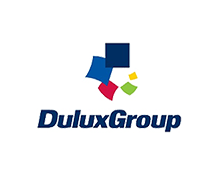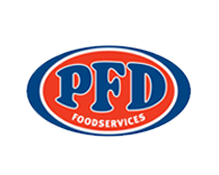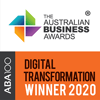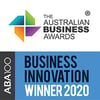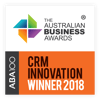Podcast transcript
Learning from Legends: Peter Switzer Discusses Artificial Intelligence and Complexica's IPO Plans with Matt Michalewicz
Complexica's CEO, Matt Michalewicz, joins Peter Switzer on the Learning from Legends podcast to discuss application areas of Artificial Intelligence, as well as Complexica's IPO plans:
www.switzer.com.au/the-experts/switzer-podcast/learning-from-legends-matthew-michalewicz/
He's the founder of the AI firm Complexica, which is heading towards being listed. But this is a very interesting story from a very interesting guy who may not be a legend or a household name right now, but within a couple of years, he may well be exactly that. Matthew, thanks for joining us.
I got to know you – I don’t know whether I got to know you beforehand or not, but certainly an important part of our relationship was when you published a book called Life in Half a Second, How to Achieve Success Before It's Too Late. And this was a best-selling book and it sort of catapulted you onto the speaking circuit. And that's where we certainly bumped into each other on many occasions. But even before then, you had a very interesting history, which the book actually talks about, and that is you have always had a fascination with Arnold Schwarzenegger and also you have a fascination with IT and tech and you've listed a company before.
So why don't we start with your fascination with Big Arnie?
MM: OK, that's an easy one. I was seven when my father took me to the movie theater to see the movie Commando, and it took my breath away. They steal his daughter and he kills a thousand people to get her back. I thought the guy was incredible. You know, I wanted him to be my father. That was such a striking role model. But what resonated with me is one person overcoming amazing odds. That's what really struck me in his movies.
And then as I read books about him, his life is similar to those movies. He overcame incredible odds. You know, a country boy from Austria becomes the world's greatest bodybuilder. Then he becomes the highest paid movie star in the world. He got paid thirty million for Terminator-3. Then he reached the highest political office that a non-born American citizen can reach, which is governor of California. So I can't really think of anyone at all in the globe that has reached the number one position in a variety of different disciplines sports, movies, politics and so forth.
So there's something he does that's different to other people. So it became a fascination where I really wanted to understand the man behind the movies and what drove his success and what was his philosophy, his values and so on. And obviously, I love his movies so that he's an easy guy to like for someone like me.
But you also became preoccupied with bodybuilding as well yourself, didn't you, and your father, who's an academic scientist, correct me if I'm wrong, wasn’t impressed with he wanted you to go to university.
He was terrified. So the technology part of my background is my father has been an AI scientist since I was six years old. So I grew up as an only child in university settings, listening to lectures on neural networks and the Turing test and Machine Learning, genetic algorithms and so on, and spent really my formative years primary school, high school, even at the university in a household where advanced technology was the daily vernacular, people came over that were other university professors, Ph.D. students, people in industry and coming from family, that's professors in universities, you can imagine how heartbreaking it would be to hear that their son wants to be a bodybuilder and wants to do bench press and barbel curls, set up for shows and then make and make a career out of it. So. So, yeah, that was, I think, a pivotal moment. And I gave it my best crack Peter and I found out that I was never going to be as good as Arnold Schwarzenegger when it came to bodybuilding and finished the university and moved into technology.
PS: Yeah. And along the way, you were able to list a company on those doctors. Tell us briefly about that company.
MM: So I had three technology companies. Complexica – well I was going to say the newest but it's seven years plus in age. The first one was in the United States. It was a company called Nutech, and it was the first attempt really to commercialize a lot long before it was fashionable - even the term machine learning or artificial intelligence, data science. Those weren't popular vernacular terms used at all. It was advanced algorithms for complex business problems to create commercial outcomes. Those were the kind of conversations that we had. And we did an enormous amount of projects in defence, in banking, in manufacturing and distribution that set the ground for me to really set the training ground for everything I was going to do later in life when it came to technology and in business. We raised a lot of venture capital and the second business we created was in Australia. That company ended up being sold. We moved to Australia, created a second business called SolveIT Software that became very successful in 2012. It was the third fastest growing company in Australia before being sold to Schneider. And now I've got complex CEQA and I'm going to see how far I can take it go into the public markets. I think I can do it better than the acquirers of my previous businesses.
PS: So I'm going to come back to the book at the end for an exciting finish for those people that might not be interested in a company that has enormous potential. But the story around this is very, very interesting because complexity actually does take complex business processes and tries to basically learn them and help human beings. Process all the inputs that are out there, which should be very, very hard to process. Now, that's the way I've interpreted it. But give us an example of how that the product, that complex you put out will help people in business.
MM: Very good question. So the one sentence answer is our software helps companies make better decisions in complex areas. And the world has reached a rate of noise, of speed, of complexity, where in business it's very difficult for anyone to have and analyze all the data and information when making decisions.
Which are the result of that, Peter, that companies make suboptimal decisions. They do the best that they can at the time that's allocated with the capability of the people that they have. So imagine a software platform which we've commercialized at Complexica, called Decision Cloud that is able to process all of the data and information that a human might, if they had thousands of years, if they had unlimited time. And the machine does it in a very short period of time, but not to give a report or to give insights, which I think is very, you know, 1990, 2000, but to actually recommend actions, this is what you should do that will maximize commercial outcomes. And as a concrete example, think about alcohol sales in outlets like celebrations or Thirsty Camel or Bottle Mart or Sip-and-Save, think about all the products that they have in those stores. Think about the promotions that they run. When should you run a promotion? How much should it be? How will it affect the whole category? Will it create a basket? Is it good for that region? Is it going to be impacted by competitive actions? The number of variables that you would have to consider to come up with an optimized promotional plan and pricing strategy is almost infinite. And yet in all of those stores, the promotions that are being driven come from a complex application. And it helps those people in these companies, like Metcash, process all of that information and make optimized decisions in terms of what should be promoted when, what price to get the best result for themselves and the retailers in the marketplace. So we're dealing with problems of complexity and scale. Where you just can't process all the information is a lot of problems like that, price and collusion, supply chain, so on.
PS: So I guess in the past, welll still going on now, until everybody uses the products of Complexica, which is something you hope will happen one day, is that the key decision maker might have a team around him who he thinks are really smart. And then they put down the really it's like an example about a little rocks and rocks and all that sort of stuff. And, you know, you have you go for the big rock first, you know, the really important things that you think's going to drive sales and get them on board first. And you say, well, is there anything else we can throw in the mix? And you try to evaluate and we do as economists, when we try to work out how consumption goes up and down, we create what we call a consumption function, and it's important variable till consumption is identified.
And then we put a marginal response coefficient on those variables like the value of assets, interest rates, income, all those things. In the end, we hope to work out what might happen to consumption. So if income rises or interest rates fall, so you get the same kind of thing when it comes to working out real business problems for real businesses. And how many businesses have you actually applied your work to?
MM: Oh, yeah, over these three companies in twenty years it's been hundreds and hundreds of companies at Complexica it's been dozens and dozens. And the and you're exactly right. We offer practical AI - we're commercially focused outcome focus. We want to generate commercial value through better decisions. And your earlier point that the decision maker has a team of experts around them, that's usually the case. These are very clever people. They're very smart and they're very capable. But unfortunately, they're dealing with problems that if you were to try all the combinations to figure out which one is the best, you'd spend your lifetime trying to figure it out.
Just for one instance, we have to take shortcuts. We take last year's plan. We modify it a bit in theory, in field sales, when you might have three hundred salespeople, you take shortcuts. Which customers should I visit this week or this month? Maybe I should just visit the most valuable ones. So all these shortcuts create sub optimality that that businesses end up leaving value on the table. And if we could just have the machine to analyze all those combinations and everyday tell people if you want the best commercial outcomes, these are the best decisions, there's huge value to be unlocked.
Huge value. Yeah, before I ask next related question, and that would be around, how easy was it to sell the idea that a machine could understand customers and come up with pricing better than experts in the industry? Yeah, as far as this question. Have you read Ray Dalio’s book Principles?
MM: Of course. And the reason I read it is because you recommended it to me.
PS: Well, that's good. That's good. Maybe I recommended it to you because. Because in many ways he said the same thing that once upon a time here, the smartest people, and they tried to think about all the reasons that a stock market could go up or down or a particular stock price or asset price go up and down and you realize you couldn't take no longer taking all the multiplicity of variables going in there. So he actually said that we now invest using that kind of artificial intelligence that actually helps him comprehend the multiplicity of variables. And that's exactly what you're doing.
MM: Yeah, absolutely. And to your point, convincing people that a machine can do it better than them, I don't think that you're trying to do that. Think of it in a different way. Imagine 70 years ago not having a calculator and then a decade later, so a calculator is invented and it cost twenty thousand dollars and a few people have it and they have a competitive advantage. And the calculator can do equations and arithmetic faster than the human's right.
And then everyone has a calculator and the playing field is level. But then computers come along and again, computers cost millions of dollars. They're very expensive. Those that have it have an advantage. And then and then they get commoditised and then spreadsheets come along and people build spreadsheets. And so A.I. is the latest calculator. So it is the machine that is going to do what the human would have done, like arithmetic by hand. But it's going to do it in a fraction of the time that they would have taken.
So that's the way to think about it rather than the machine does it better? Well, you know, a calculator is clearly faster than an average human being in adding numbers. And clearly these algorithms are also faster than analyzing all that information and providing decision.
PS: Does it ultimately rely on some human being or group of human beings to try and work out the importance of a variable? I talked about the consumption function is a marginal response coefficient for normal people listening. That's what I'm saying, is that there's a number that identifies how important that is. In your process to someone have to attribute values of importance to each variable. Or is the machine, the AI machine able to do that? Because you kind of think this through identifying variables you never thought of. You want them to work out how important that one is?
MM: Absolutely. So both when you configure algorithms and you train them on test data and training data and so forth, and you tune models and developed models, there's a lot of human expertise that goes into it both from the business and the machine learning scientists. And you test various hypotheses to your point how much weight should be assigned to it, but how important is whether how important this competitor actions, how important is seasonality and so forth. But once the models have been tuned and tested and providing the most accurate results, then it's up to the machine to learn and improve itself going forward.
So it's a combination of human experts setting it up at the beginning and then the machine learning and improving its performance going forward and the goal of the algorithms is to provide the best possible forecast prediction, recommended decision. And it's measuring what it's recommending or forecasting against actuals and trying to improve itself just like we try to improve ourselves as humans.
PS: So is there the potential that the capability of the machine such that where we might say, I wonder if that bushfire has had a massive impact on the sales in my supermarket? So what we would do is we get a whole lot of data and we'd set it against a time frame of the bushfire and we might go back for the last ten bushfires to see if there was a pattern. Now, that's what I as an economist, I would do. I try and work as a designer. Does the machine make those decisions to actually test out relationships between variables over a longer period of time?
MM: No, no, I don't think we've gotten there yet with technology. And this is still a function of human experts to do. And this is why you need PhDs and AI companies to do exactly what you were talking about. So a machine is very good. Once you've defined all the variables, you adjust, you've set some weightings to it, and then the algorithms run and the weightings are automatically adjusted going forward.
PS: Your weighting could be a little bit exaggerated and over time the machine would correct it
MM: Correct. But to your point around a bushfire, if we hadn't considered bushfires as a variable, then the machine will never be able to consider a bushfire as a variable because it's fundamentally not in the model, not in the algorithm. So bushfires become a factor that should be, it is providing significant impact on the model. So it needs to be manually added by human experts and initial weighting assigned, and then the model goes. covid is a very good example. I don't think any model for these business problems had pandemic's and lock downs and massive changes in perhaps consumer preferences and behaviors in-built into the to the model. So the models couldn't take it into account. But once you added those variables to it and going forward, it could and this required the machines aren't clever enough nor the algorithms to do this by themselves today.
PS: Okay. Now everything I've talked about at this point in time, if someone is trying to visualize how these machines work, it seems so much big end of town and, you know, someone maybe marketing or strategic planning using this. But there was an example, I think, in a story written in The Australian, which says for a salesperson, for example, to make the best decision with regard to what to offer a particular client, there's simply too much time to absorb. So is your product going to be usable at the coalface by someone like a salesperson?
MM: It is currently already by big companies in Australia that have lots of salespeople, current customers of complexity like Dulux Group or PFG Food Services or Bunzl. These are billion dollar plus organizations. They have hundreds of salespeople that are now armed with complex applications where an individual salesperson gets individual recommendations on what is the best actions to undertake today, which customers, what conversations you are going to have, what products to offer, how they should price things. And all of these things, Peter, are processes that would have been very complex and analytical for the individual sales rep to do and been automated through the use of these types of algorithms, so all advanced technology starts at the big end of town, actually usually starts in military and then goes into banking and there's a whole adoption curve. But eventually everyone has to look at computers. You know, it started off with military and NASA and so forth. And now everyone's got a computer.
Everyone's got a computer on their phone. This technology is very, very similar. In the 70s, it was a military type of technology. Then in the 80s, it began pervading industries. Now it's everywhere, but mostly bigger companies. But it's sure enough, coming down and down and down. Wait another 10, 20, 30 years, it would be like the calculator would be like the spreadsheet and there'll be something else. There'll be exciting that people will be talking about and saying this is the next great technology. Everything gets commoditised.
PS: So also you're saying that, you know, the salesperson working for a company like Dulux in Katoomba might get a different answer than a salesperson on the Gold Coast in Queensland.
MM: And that's the key. I think this era of everyone getting the same offer, the same advice, the same that that's dead. That's the stuff that's reporting. And like I said before, nineteen ninety two thousand. The future is all about individualization, personalization. Talk to me as a sales rep what I need to my territory with my customers specifically to me, and allow that sales rep to have these personalized conversations and actions with their customers. That's the future. And to come up with these personalized actions is actually a very complex analytical process. You're not only analyzing data all the time, 24/7, but you're actually trying to recommend very specific actions that a salesperson should take to achieve the best outcome or best use of their time.
PS: Okay, so when do you think you'll be listing on the Australian Stock Exchange?
MM: Our goal is the first half of next year, so about a year from today, which is a great period of time to build the necessary relationships with institutional investors and prepare the company for a float and build an independent board and all of the things that you know very well are required for that. My vision, Peter, I want to be the kind of company in 20 years that becomes a cornerstone of the technology community in Australia. Australia based Australian listed, a place where graduates in high school and universities aspire to work and where they get to work on bleeding edge technologies and advanced types of software systems and algorithms. So we have a very long term view, and becoming a public company is an essential step to that.
PS: Yeah, well, I don't think you’re going to make it Matthew because you're not wearing a T-shirt, you're wearing a shirt with a tie. I’ve watched “Silicon Valley”. They all wear funky T-shirts. You're fit, you could get away with it. Plenty of hair as well. You can get away with being young, but you have a collared shirt on!
MM: I think you're right. And the only explanation that I have is I graduated from the university with a corporate finance degree, not a technology degree – it’s the banker in me that's wearing the shirt. But yeah, I think I think I have to dress down
PS: I know most people around the country probably don't like say anything nice about Adelaide. But as a lot of people, I'm fairly low. But Adelaide is actually a great city to be a tech company in and there's a lot of really smart tech businesses that have come out of Adelaide.
MM: Yeah, it's an incredibly beautiful place to live. It's you know, you've got the wineries, the hills, amazing beaches, the culture is fantastic food and wine. And now it's got a great technology presence as well. The people that we employ and that live here are enormously dedicated to the state, to the city. It's kind of like Microsoft created their head office in Seattle. You know, there was nothing in Seattle, but they wanted people that worked there to really be committed.
Not that they're going to be poached by the other companies in Silicon Valley and so on. So we didn't do that deliberately. We just loved living here. But I think it's a fantastic place to headquarter a technology company. And it's in today's world, you could really be based anywhere in terms of people and offices and be successful. It's not like fifty years ago or even 30 years ago. So we're big advocates of the state and we know we can be successful by staying headquartered here.
PS: Yeah, I have heard that when you are trying to get people to come to South Australia, aside from the more expensive cities like Sydney and Melbourne. There's an appeal in terms of what you can buy in terms of real estate and that sort of stuff, that could be a bigger appeal factor nowadays.
MM: Yeah, and we've got much better wine as well, which is extremely important for a lot of people
PS: Yeah, I think you guys created that rumour but anyway, before we wrap up, I’d just like you to sum up in a nutshell, those five steps that you thought was critically important success in that book of yours, Life In Half a Second.
MM: Yeah, I researched the years as an entrepreneur, what drives success. And it came to really five core themes. And the first theme was having a goal on what you do. So since the beginning of Complexica, we had a goal of being a public company and seeing how far we could push it globally and creating something that Australia would be proud of. The second step is desire, which is the energy required to achieve the goal. So people that have incredible desire put in incredible energy and effort into achieving that goal, and they have a much better chance of success.
So we want it, that's our life's mission to do this, our life's calling. So the desire is very high and a lot of effort is put in, and the third - you have to have belief. You have to believe you can do it. And having been through these processes before and having run successful companies that have grown and been sold in Australia and in the US, we know we can do it. It's not even a belief. We know we can do it. And we know what's required for it - you have to have the knowledge to do it. So if you want to float a company, there's so many things, whether it's the capital structure of a business, whether it's institutions, whether it's independent boards, audit, having brokers, analysts, etc. It's an entire process that has to be undertaken to do a float, investment bankers and whatnot. But once you know what all of that is, that's your goal.
You know, you can do it. You believe in yourself and you have the desire. And the last final step is just to do it, which is action. And action is systematic. It's not one big jump. It's daily actions, small steps that over long periods of time amounts to significant outcomes. Every day you've got to say becoming a body builder. Every day you've got to go into the gym and you've got to just do a little bit more than you did in the previous session. And if you do that over five or seven years, you'll have a physique that's at the top of your genetic potential. Business is the same every day. You've got to be stepping towards the goal with energy, with that effort, with enthusiasm. Everything in life and success comes down to these five things.
PS: Yeah, I'm sure I've shared with you that favorite quote of mine of Chris Evert when she said “There were times when deep down I wanted to win so badly I actually will it to happen. I think most of my career was based on desire”. And you're absolutely right.
I must admit, I I've used it for quite some time and I shared this with our audience last week. I just share it with you one more time that I've used that quote for a long time in my speeches, in my writings and but my producer in the old days Andrew Brown, he just couldn't find where she actually said it. And so I said, I must have got somewhere in Google. I wouldn't have made it up, but maybe I could have but last two years ago I was flying to the Australian Open. I was in Rwanda on Virgin, flying to Melbourne and seeing behind me and Rhodes, who was Chris Evert. So I turned around to introduce myself to a TV show that gave me a reason to interfere in her life. I asked, did she say it? And as I said, the quote her smile got bigger and bigger. And she said, yes.
MM: Fantastic, not only a great quote, Peter, but a great story to go with it.
PS: Yeah, for sure. So, Matthew, I'm not going to try pronouncing your surname any more. You can be Matthew M for the rest of your life. I look forward to seeing the next stage of your success. If the name Michael M doesn't become a legend, I think Complexica will. Thanks for joining us on the program.
Thank you, Peter.
"Larry will be our digital expert that will enable our sales team and add that technological advantage that our competitors don't have."
Kerry Smith
CEO, PFD Foods
$1.6 billion in revenue 
"Lion is one of Australasia’s largest food and beverage companies, supplying various alcohol products to wholesalers and retailers, and running multiple and frequent trade promotions throughout the year. The creation of promotional plans is a complicated task that requires considerable expertise and effort, and is an area where improved decision-making has the potential to positively impact the sales growth of various Lion products and product categories. Given Complexica’s world-class prediction and optimisation capabilities, award-winning software applications, and significant customer base in the food and alcohol industry, we have selected Complexica as our vendor of choice for trade promotion optimisation."
Mark Powell
National Sales Director, Lion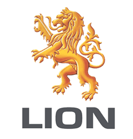
"At Liquor Barons we have an entrepreneurial mindset and are proud of being proactive rather than reactive in our approach to delivering the best possible customer service, which includes our premier liquor loyalty program and consumer-driven marketing. Given Complexica’s expertise in the Liquor industry, and significant customer base on both the retail and supplier side, we chose Complexica's Promotional Campaign Manager for digitalizing our spreadsheet-based approach for promotion planning, range management, and supplier portal access, which in turn will lift the sophistication of our key marketing processes."
Richard Verney
Marketing Manager
Liquor Barons

"Dulux is a leading marketer and manufacturer of some of Australia’s most recognised paint brands. The Dulux Retail sales team manage a diverse portfolio of products and the execution of our sales and marketing activity within both large, medium and small format home improvement retail stores. We consistently challenge ourselves to innovate and grow and to create greater value for our customers and the end consumer. Given the rise and application of Artificial Intelligence in recent times, we have partnered with Complexica to help us identify the right insight at the right time to improve our focus, decision making, execution, and value creation."
Jay Bedford
National Retail Sales Manager
Dulux

"Following a successful proof-of-concept earlier this year, we have selected Complexica as our vendor of choice for standardizing and optimising our promotional planning activities. Complexica’s Promotional Campaign Manager will provide us with a cloud-based platform for automating and optimising promotional planning for more than 2,700 stores, leading to improved decision-making, promotional effectiveness, and financial outcomes for our retail stores."
Rod Pritchard
Interim CEO, Metcash - Australian Liquor Marketers
$3.4 billion in revenue 
"After evaluating a number of software applications and vendors available on the market, we have decided to partner with Complexica for sales force optimisation and automation. We have found Complexica’s applications to be best suited for our extensive SKU range and large set of customers, being capable of generating recommendations and insights without burdening our sales staff with endless data analysis and interpretation.
Aemel Nordin
Managing Director, Polyaire
"DuluxGroup is pleased to expand its relationship with Complexica, a valued strategic partner and supplier to our business. Complexica’s software will enable DuluxGroup to reduce the amount of time required to generate usable insights, increase our campaign automation capability, personalise our communications based on core metrics, and close the loop on sales results to optimise ongoing digital marketing activity."
James Jones
Group Head of CRM, DuluxGroup
"Instead of hiring hundreds of data scientists to churn through endless sets of data to provide PFD with customer-specific insights and personalised recommendations, Larry, the Digital Analyst® will serve up the answers we need, when we need them, on a fully automated basis without the time and manual processes typically associated with complex analytical tasks.”
Richard Cohen
CIO, PFD Foods
$1.6 billion in revenue 
"As a global innovator in the wine industry, Pernod Ricard Winemakers is always seeking ways to gain efficiencies and best practices across our operational sites. Given the rise of Artificial Intelligence and big data analytics in recent times, we have engaged Complexica to explore how we can achieve a best-in-class wine supply chain using their cloud-based software applications. The engagement is focused on Australia & New Zealand, with a view to expand globally."
Brett McKinnon
Global Operations Director, Pernod Ricard Winemakers
"70% - 80% of what we do is about promotional activity, promotional pricing -- essentially what we take to the marketplace. This is one of the most comprehensive, most complex, one of the most difficult aspect of our business to get right. With Complexica, we will be best in class - there will not be anybody in the market that can perform this task more effectively or more efficiently than we can."
Doug Misener
CEO, Liquor Marketing Group
1,400+ retail stores 
"The key thing that makes such a difference in working with Complexica is their focus on delivering the business benefits and outcomes of the project."
Doug Misener
CEO, Liquor Marketing Group
1,400+ retail stores 
"Australia needs smart technology and people, and it has been a great experience for me to observe Complexica co-founders Zbigniew and Matt Michalewicz assemble great teams of people using their mathematical, logic, programming, and business skills to create world-beating products. They are leaders in taking our bright graduates and forging them into the businesses of the future."
Lewis Owens
Chairman of the Board, SA Water 
"Having known the team behind Complexica for some years ago now, I am struck by their ability to make the complex simple - to use data and all its possibilities for useful purpose. They bring real intelligence to AI and have an commercial approach to its application."
Andrew McEvoy
Managing Director, Fairfax Media - Digital 
"I have worked with the team at Complexica for a number of years and have found them professional, innovative and have appreciated their partnership approach to delivering solutions to complex problems."
Kelvin McGrath
CIO, Asciano 
“Working with Complexica to deliver Project Automate has been a true partnership from the initial stages of analysis of LMG’s existing processes and data handling, through scoping and development phase and onto delivery and process change adoption. The Complexica team have delivered considerable value at each stage and will continue to be a valued partner to LMG."
Gavin Saunders
CFO, Liquor Marketing Group 
“Complexica’s Order Management System and Larry, the Digital Analyst will provide more than 300 Bunzl account managers with real-time analytics and insights, to empower decision making and enhanced support. This will create more time for our teams to enable them to see more customers each day and provide the Bunzl personalised experience.”
Kim Hetherington
CEO, Bunzl Australasia 
"The team behind Complexica develops software products that are at the cutting edge of science and technology, always focused on the opportunities to deliver a decisive competitive edge to business. It has always been a great experience collaborating with Matthew, Zbigniew and Co."
Mike Lomman
GM Demand Chain, Roy Hill Iron Ore 
"The innovations that the Complexica team are capable of continue to amaze me. They look at problems from the client side and use a unique approach to collaborating with and deeply understanding their customers challenges. This uniquely differentiates what they bring to market and how they deliver value to customers."
John Ansley
CIO, Toll Group 
"Rather than building out an internal analytics team to investigate and analyse countless data sets, we have partnered with Complexica to provide our sales reps with the answers they need, when they need them, on a fully automated basis. We are excited about the benefits that Larry, the Digital Analyst will deliver to our business.”
Peter Caughey
CEO, Coventry Group 
“Complexica’s Order Management System and Larry, the Digital Analyst will provide more than 300 Bunzl account managers with real-time analytics and insights, to empower decision making and enhanced support. This will create more time for our teams to enable them to see more customers each day and provide the Bunzl personalised experience.”
Kim Hetherington
CEO, Bunzl Australasia 
"After an evaluation process and successful proof-of-concept in 2016, we have chosen to partner with Complexica to upgrade the technological capability of our in-field sales force. The next-generation Customer Opportunity Profiler provided by Complexica will serve as a key tool for sales staff to optimise their daily activities, personalise conversations and interactions with customers, and analyse data to generate actionable insights."
Stephen Mooney
Group Sales Capability Manager, DuluxGroup
$1.7 billion in revenue
"After evaluating a number of software systems available in the marketplace, we have ultimately selected Complexica as our vendor of choice for sales force automation and CRM. Given the large SKU range we carry and very long tail of customers we serve, Complexica’s applications are best suited to deal with this inherent complexity without burdening our staff with endless data entry."
Nick Carr
CEO, Haircaire Australia
Australia's largest distributor of haircare products
“Asahi Beverages is Australia’s largest brewer, supplying a leading portfolio to wholesalers and retailers, including some of Australia’s most iconic brands. Last year Asahi Beverages acquired Carlton & United Breweries, which is its Australian alcohol business division. To harness the strength of our expanded portfolio, we partner with our customers to run multiple and frequent trade promotions throughout the year, delivering long-term growth for both our business and theirs. Given the inherent complexity in optimising promotional plans and our continued focus on revenue and growth management, we have selected Complexica as our vendor of choice after a successful Proof-of-Concept of its world-class optimisation capabilities.”
Kellie Barnes
Group Chief Information Officer
Asahi Beverages
"Dulux is a leading marketer and manufacturer of some of Australia’s most recognised paint brands. The Dulux Retail sales team manage a diverse portfolio of products and the execution of our sales and marketing activity within both large, medium and small format home improvement retail stores. We consistently challenge ourselves to innovate and grow and to create greater value for our customers and the end consumer. Given the rise and application of Artificial Intelligence in recent times, we have partnered with Complexica to help us identify the right insight at the right time to improve our focus, decision making, execution, and value creation."
Jay Bedford
National Retail Sales Manager, DuluxGroup
"At Liquor Barons we have an entrepreneurial mindset and are proud of being proactive rather than reactive in our approach to delivering the best possible customer service, which includes our premier liquor loyalty program and consumer-driven marketing. Given Complexica’s expertise in the Liquor industry, and significant customer base on both the retail and supplier side, we chose Complexica's Promotional Campaign Manager for digitalizing our spreadsheet-based approach for promotion planning, range management, and supplier portal access, which in turn will lift the sophistication of our key marketing processes."
Richard Verney
Marketing Manager, Liquor Barons








